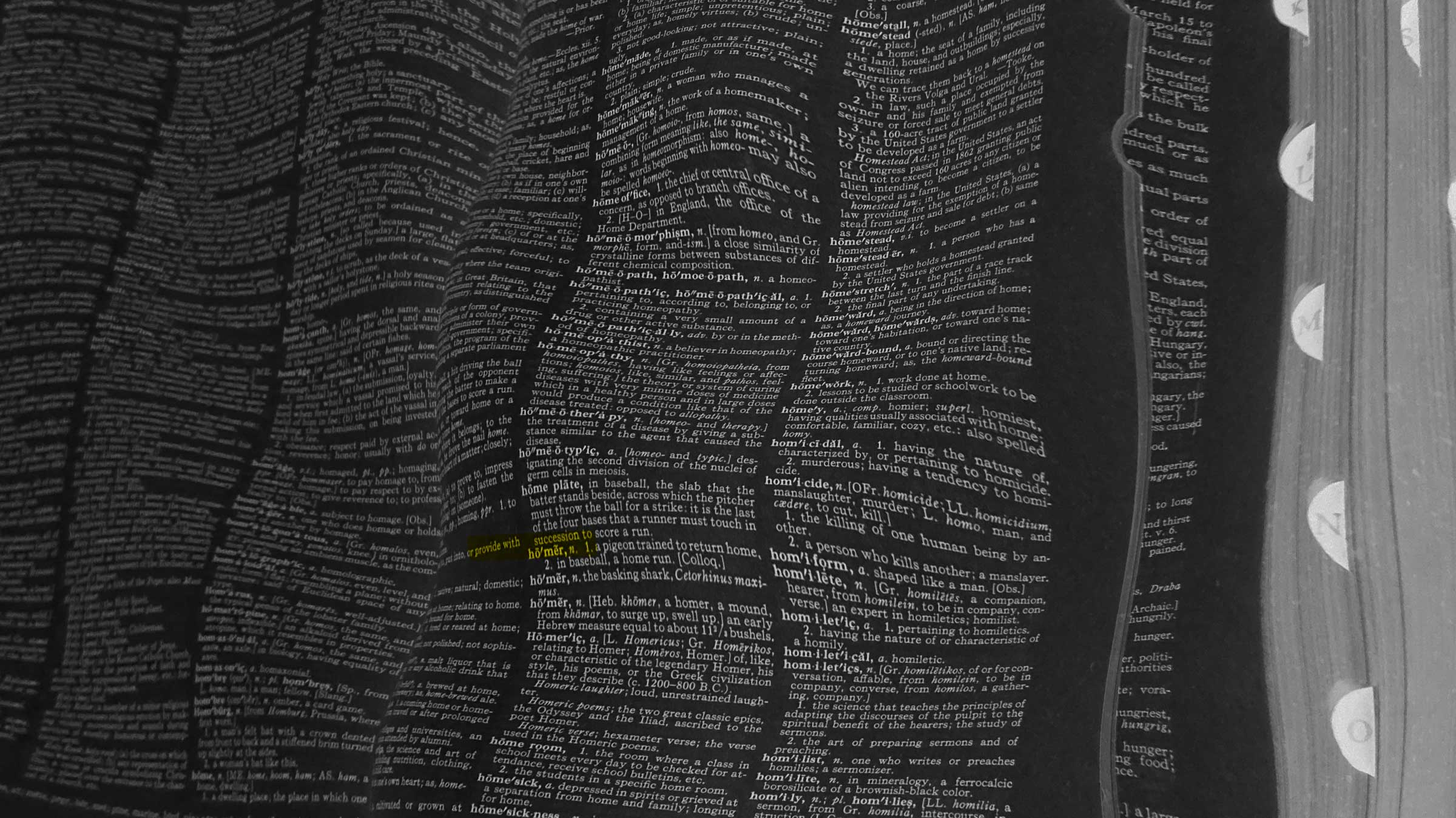From ‘goblin mode’ to ‘gaslighting’ to ‘homer,’ dictionaries missed the mark in crowning their official Words of the Year
It’s that time of the year again. We’re taking stock of the last 12 months, summing things up, getting our bearings, and listing optimistic resolutions around setting boundaries and recycling more and stretching in the morning.
Websites love this: Gone are the days of 17-3938 Very Peri; Pantone’s progressed to Viva Magenta, 18-1750. And move over Burrowing Owl; the American Birding Association has announced that in 2023, the Queenfisher is taking reign as Bird of the Year. (This is a feminist moment. The Queenfisher is one of the few avian species whose women are more colorful than their men.) What else? TIME’s 2021 Person of the Year was unfortunately Elon Musk; they took a less controversial approach this go-around, crowning Ukrainian President Volodymyr Zelensky. (For transparency, he actually took third place in the reader poll, after Iranian Protestors and BTS, in that order. TIME overruled popular opinion, which I suppose they’re in their right to do. Taylor Swift was fourth, and Ketanji Brown Jackson, fifth.)
People jump on these annual appraisals, gunning for those contenders that reflect their versions of reality. The Word of the Year trend is particularly controversial, political, and bound to go viral. A vitriolic op-ed for the Philadelphia Inquirer called it “stupid,” “unapologetically self-indulgent,” and a “clickbaity pseudo-tradition.” A bit severe, perhaps—but I was likewise confused by this year’s selections, which drew that writer’s exasperation. For your reading pleasure, a quick list of winners, hopefully rounding out your picture of 2022.
Oxford English Dictionary
Goblin mode: a type of behavior which is unapologetically self-indulgent, lazy, slovenly, or greedy, typically in a way that rejects social norms or expectations”
This was the most controversial Word of the Year, for a few reasons: It’s more of a phrase; it doesn’t actually appear in the dictionary (not even Oxford’s); and it’s mostly reserved for chronically-online and, apparently, gaming communities. This was the first time that Oxford made its decision by public poll, although they were the ones to pose its three options. (Metaverse and #IStandWith were runners-up.) So it seems like they got what they deserved—and ultimately, what they set out for—in the sense that there was no rational vote. Goblin mode first emerged in 2009, but resurfaced in February via a doctored headline that ravaged the internet: “Julia Fox opened up about her ‘difficult’ relationship with Kanye West. ‘He didn’t like it when I went goblin mode.’” The idea is that the term perfectly encapsulates the general energy of pandemic lockdown (looking bad, being rude and greedy) thus resonating on a global scale.
“People jump on these annual appraisals, gunning for those contenders that reflect their versions of reality.”
Dictionary.com
Woman: an adult female person
This Word of the Year was the second-most controversial. We like a feminist moment (again: the Queenfisher), but Dictionary.com’s actual definition isn’t doing much. The justification behind their choice was lacking, as well: “It’s one of the oldest words in the English language… And yet it’s a word that continues to be a source of intense personal importance and societal debate. It’s a word that’s inseparable from the story of 2022.” It feels like they remembered to do this the night before. And not to diminish the issue of Women’s Rights in 2022, but I think this word might have been better-suited to the late-2010s.
Merriam-Webster
Gaslighting: the act or practice of grossly misleading someone especially for one’s own advantage
Likewise, this seems a bit late. But it does have the spirit of a proper Word of the Year—trendy, emerging or re-emerging rather recently, signaling a new shift in the broad public psyche, if not a bit too negative. You have one shot to encapsulate 2022, and you choose a word that means psychological manipulation? Fair enough—I think that’s pretty honest and humbling, and maybe what we need to hear right now. Apparently, searches for the term have increased 1,740% over the year, topping the charts along with oligarch (war in Russia), Omicron (COVID), codify (Roe v. Wade), raid (Mar-a-Lago), and cancel culture (self-explanatory). Sending Merriam-Webster users my very best wishes.
Collins Dictionary
Permacrisis: an extended period of instability and insecurity, especially one resulting from a series of catastrophic events
Basically, this one elicits the same response as gaslighting, in terms of mood. We are definitely in the midst of a permacrisis; I won’t argue with Collins on that. But I will say that I’ve never heard of this term, and I don’t think that’s a marker of a good Word of the Year. My Google Doc thinks it’s a spelling mistake. Some other contenders were Carolean, Partygate, lawfare, splooting, and sportswashing—all also seemingly spelling errors. Collins is catering to a UK audience, so I’ll give them the benefit of the doubt on this one. I’m just assuming there’s a cultural barrier.
Cambridge Dictionary
Homer: short for home run, a point scored in baseball when you hit the ball, usually out of the playing field, and are able to run around all the bases at one time to the starting base
This one actually threw me for a loop. I don’t think Cambridge understood what all the other dictionaries were going for—or maybe they wanted to stand out. But it didn’t work, because nobody is really talking about this Word of the Year. It was apparently their highest-spiking search term, because a bunch of non-Americans were disgruntled when they couldn’t think to guess it while playing Wordle. One interesting comment from the team: “Five-letter words have simply taken over the lookups on the Cambridge Dictionary website.” As long as we’re learning!



















